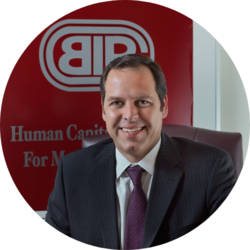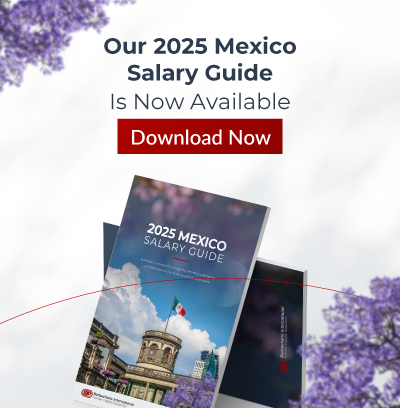
Imagine building a dream team of high performers, only to see them drift away in search of higher pay, more significant challenges, or even a better cultural fit just when they start making a real impact. That’s the challenge many companies face today. The game-changer in this scenario is to realize that your work isn’t over once you successfully sign a star player. At that point, you must focus on retention—keeping your top employees engaged, fulfilled, and loyal. Let’s discuss how shifting your focus from hiring to actively retaining talent can redefine your organization’s success.
Hiring: A Changing Paradigm
For years, companies have invested heavily in recruitment strategies to attract the best candidates, and of course, that’s still an important piece of the puzzle. However, keeping high performers happy has become critical in improving market conditions and increasing job mobility. In other words, retention is the new recruitment. In a recent survey, about 81% of respondents say they’re concerned about losing top performers to competitors offering better opportunities for growth, recognition, and work-life balance. If you play your cards right, however, you can be among the 19% without worrying about it.
The Cost of Turnover
Replacing an employee can cost 50% to 200% of their annual salary regarding recruitment, onboarding, and training expenses. Also, high turnover rates can disrupt team dynamics, reduce morale, and negatively impact overall productivity (Built-In). In contrast, when you retain employees, you build a stable, cohesive work environment over time.
Key Strategies for Retention
- Create a Positive Work Culture: A Harvard Business Review study found that top executives work about 62.5 hours weekly. Question: Who wants to spend that much time in a place where they don’t feel valued, respected, and motivated? Answer: nobody, which is why promoting a healthy culture that prioritizes work-life balance, recognizing achievements, and encouraging open communication is a pivotal part of retention.
- Offer Competitive Compensation and Benefits: Money isn’t everything, but it is something. Attractive executive compensation packages go beyond salary and include comprehensive health benefits, retirement plans, and other perks like flexible working hours and remote work options (Human Interest). Employees who feel well-compensated and supported tend to remain loyal to their employers.
- Provide Opportunities for Growth and Development: According to leading HR technology innovator Xobin, “Career growth opportunities stimulate an intent and commitment among employees, leading to higher engagement levels within the organization.” By investing in an employee’s professional development through training programs, mentorship, and clear career progression paths, employers illuminate that person’s future within the organization and minimize the chance of him or her seeking opportunities elsewhere.
- Leverage Technology and AI: AI-driven analytics can provide insights into employee engagement, performance, and potential flight risks. These insights can help companies proactively address issues and create personalized retention strategies (Culture Monkey). For example, AI can identify patterns of disengagement and suggest interventions to re-engage employees before they decide to leave.
- Foster Diversity and Inclusiveness: More than buzzwords, diversity and inclusiveness are integral to a successful retention strategy.
Global workplace culture authority Great Place to Work conducted culture research indicating that when employees believe they and their colleagues will receive fair and respectful treatment regardless of race, gender, age, or sexual orientation, they are:
- 9.8 times more likely to look forward to going to work
- 6.3 times more likely to take pride in their work
- 5.4 times more likely to stay long-term with their company
Leadership’s Role
Leadership’s role in employee retention can’t be overstated. The Training Industry interviewed thousands of professionals across multiple industries and asked them to list the leadership qualities that would entice them to stay with an organization.
Here are eight major categories of characteristics and skills they identified that influence retention:
- Communication skills
- Interpersonal skills
- Values and ethics
- Personal attributes
- Coaching and feedback
- Credibility
- Direction and Strategy
- Management essentials
In short, when employees trust and like their leaders, they’re 58% more likely to stay with the company (Legitimate Leadership).
Measuring Retention Success
To ensure the effectiveness of your retention strategy, you must regularly measure and analyze retention metrics. Key performance indicators (KPIs) like employee turnover rate, employee satisfaction scores, and engagement levels provide valuable insights. You can gather this data through regular surveys and feedback mechanisms, which will help you identify areas for improvement and align your strategies with employee needs and expectations.
As you prioritize retention by creating a positive work culture, offering competitive compensation, providing growth opportunities, leveraging technology, and fostering diversity, you’ll be far more likely to retain your top talent. By shifting the focus from recruitment to retention; you can build a loyal, motivated, and high-performing workforce. So, invest in your employees, nurture their growth, and create an environment where they want to stay. Your future success depends on it.

By Fernando Ortiz-Barbachano
President & CEO of Barbachano International
Barbachano International (BIP) is the premier executive search and leadership advisory firm in the Americas with a focus on diversity & multicultural target markets. Since 1992, BIP and its affiliates have impacted the profitability of over 50% of Fortune 500 Companies. BIP has been recognized by Forbes as Americas’ Best Executive Search Firms and currently ranks #10 and #3 on the West Coast.

